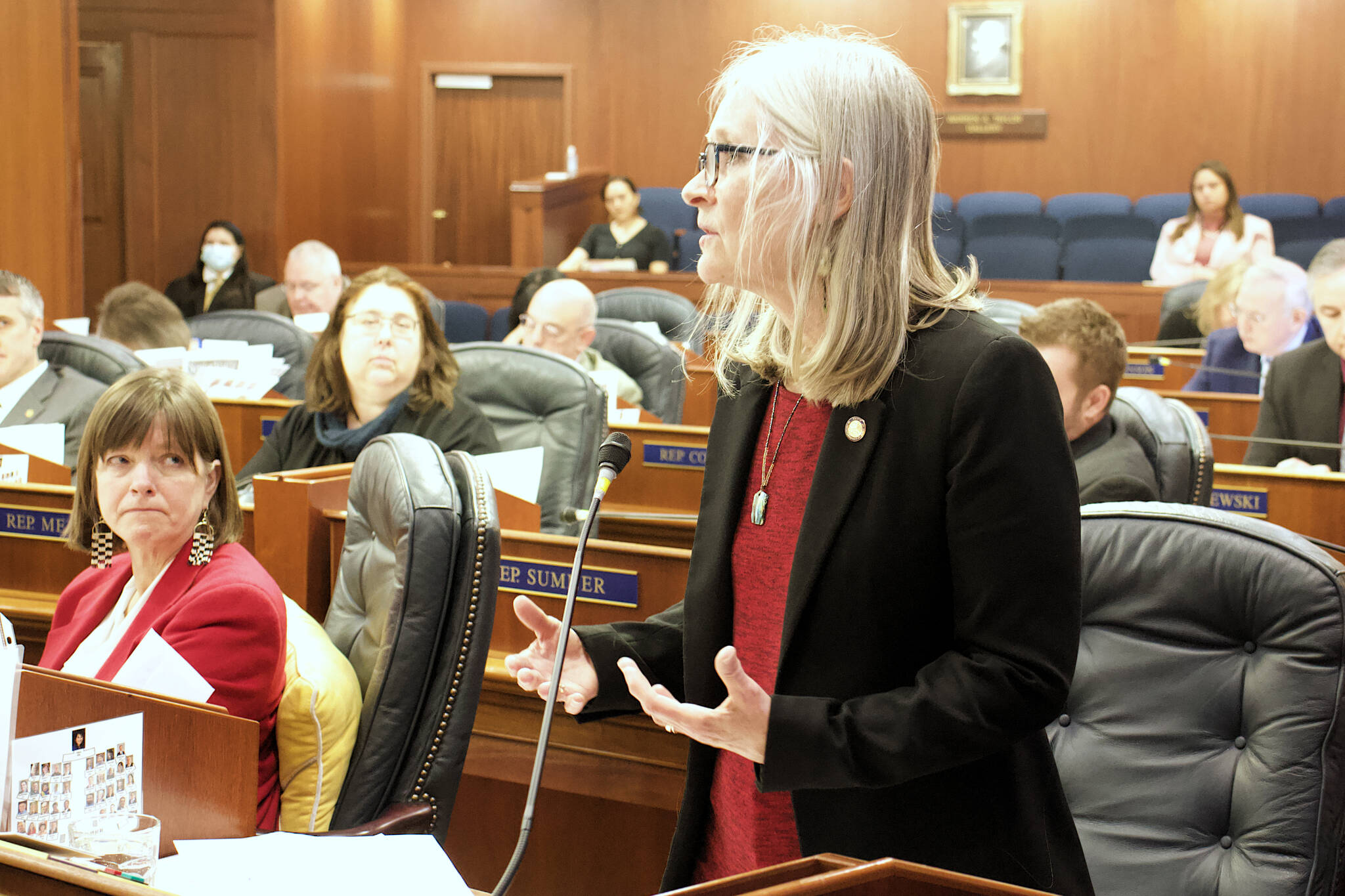This article has been updated to correct the portion of the state represented by Rep. David Eastman.
A bill by a Juneau legislator adding three Alaska Native languages to those officially recognized by the state, and expanding the size and role of an Alaska Native language council, passed the state House with a single dissenting vote Wednesday.
House Bill 26 by Democratic Rep. Andi Story adds two members to the five-member Alaska Native Language Preservation and Advisory Council, with the intent of allowing “greater language representation on the Council and (increasing) the involvement of a great number of Native language speakers from different regions of the state,” according to her sponsor statement. It also simplifies the name to the “Council for Alaska Native Languages.”
Furthermore, it adds Cup’ig and Wetał (Ts’etsa’ut) as official languages of Alaska, and divides Tanana into the Benhti Kokhwt’ana Kenaga’ (Lower Tanana) and Sahcheeg xut’een xneege’ (Middle Tanana) languages.
“The bills seeks to add languages that were unintentionally omitted when Indigenous languages of Alaska were added to the list of official languages in 2014,” Story said during Wednesday’s floor debate.
[Senate passes bill recognizing Juneteenth]
The renaming of the council goes beyond a simpler title, inferring the organization’s broader purpose, she added.
“Right now the council’s name just reflects preservation of languages,” Story said. “They do much more work about restoring and revitalizing languages.”
The council also requested two additional members who are Alaska Native speakers because there are 23 Indigenous languages in the state and thus more expertise is needed, she said.
An amendment to remove Wetał (Ts’etsa’ut) as a recognized language was offered by Rep. David Eastman, a Wasilla Republican, who said a report by the council noted the dialect is no longer spoken.
“In fact the last time is was spoken was sometime either in the late 1920s or early 1930s,” he said. “I just think there’s probably room for recognizing historically spoken languages in Alaska and perhaps there should be a list for all the languages that were at one time or another that were spoken here, but to add this language to our currently recognized legal list of official language seems a bit out of character.”
Several legislators spoke against the amendment, including Story, who served as a member of the advisory council and said the group wants official recognition of the dormant language in the hope it might be revived, as has happened in modern times with at least one other Alaska Native language.
“One of the children of their great, great grandfather or grandmother might want to bring this language back,” she said.
The amendment by Eastman, who has drawn criticism from Alaska Native leaders several times for statements they called discriminatory, was defeated by a 37-1 vote. The bill subsequently passed by the same vote.
The bill is tentatively scheduled to get an immediate hearing by the Senate State Affairs Committee at 3:30 p.m. Thursday.
• Contact reporter Mark Sabbatini at mark.sabbatini@juneauempire.com

